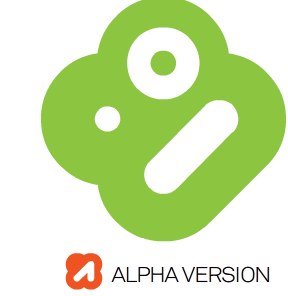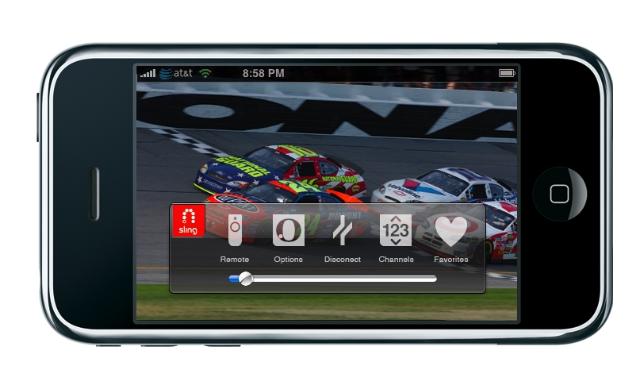
Apple asks developer to remove Android mention from App Store
Apple has asked one mobile app developer to refrain from mentioning Google's Android mobile operating system in its iTunes App store descriptions, or face rejection.
The description of the 99¢ "Flash of Genius" flash card app included the text: "Finalist in Google's Android Developer's Challenge!"

Microsoft Confessions: 'Killed over politics'
Yesterday's Dick Brass commentary, "Microsoft's Creative Destruction," the company's response to the op-ed and Tuesday's Don Dodge pro-Mac post have put Microsoft in the hot seat. The blogosphere is abuzz about the extent of Microsoft innovations. More former Microsofties are ready to speak out, and they will get their chance here at Betanews.
After the last round of Microsoft layoffs, I asked former employees to tell their stories. I got plenty of responses and not just from people recently leaving the company. No identities will be revealed, although I have verified each one. Two main reasons: Either the former employees still work in the technology industry and don't want to risk their current jobs; or they're receiving severance from Microsoft and don't want to risk losing it. Some of these people have returned to working for Microsoft as contractors, which is another reason to remain anonymous.

Boxee: We didn't steal anything from Hulu
During the few comments he was asked to make during his testimony before the House Telecommunications and Internet Subcommittee earlier today, NBC Universal President and CEO Jeff Zucker was asked by Committee Chairman Rep. Rick Boucher (D - Va.) whether Hulu -- a video Web service co-owned by NBC -- intentionally blocked the ability of Boxee's media center application for PCs to replay Hulu videos. Rep. Boucher's question was by way of ascertaining whether a combined Comcast + NBCU entity would routinely block competitors' access to programming it generated.
Zucker responded: "What Boxee was doing was illegally taking the content that was on Hulu without any business deal. We have several distributors...of the Hulu content that we have legal distribution deals with, so we don't preclude distribution deals. What we preclude are those that illegally take that content."

MPEG LA won't charge free streamers to use H.264, will charge for selling codec
While Google, Vimeo, and others continue to experiment with H.264 as the codec of choice for HTML5 Web browser-embedded video, there's still considerable debate over whether W3C -- the caretakers of HTML and other Web standards -- should allow Web proprietors to embrace standards that are not essentially free. MPEG LA, the rights holder for H.264 technology and its licensing agent for the Internet Broadcast AVC Video portfolio, recently said it will not charge royalties for the use of H.264 encoding in video that's delivered free -- specifically, for any video for which the creators or servers are not compensated -- at least until the end of 2015 (a date corrected from the end of 2016, which the licensing agency originally announced).
Does that mean H.264 is free for streamers? In a clarification for Betanews this afternoon, MPEG LA spokesperson Tom O'Reilly said it may very well be free...for those who use the codec for that purpose. But not for those who sell the encoding software that utilizes the codec.

Net neutrality objections fade, Congress appears likely to pass NBCU + Comcast
In the end, it was one lone congressman who raised the subject of net neutrality, with respect to access to content over the Internet, as more than a passing reference, or by way of suggesting that certain topics be ignored altogether: Rep. Ed Markey (D - Mass., who also chairs the Energy and Environment Subcommittee), author of the Internet Freedom Preservation Act still being deliberated in Congress, voiced his skepticism over the viability of the proposed acquisition of NBC Universal by a new unit of Comcast, saying he didn't see any guarantees that the current class of over-the-air programming offered by NBC would not be transferred to Comcast pay-TV services such as TV Everywhere.
But with NBC being the butt end of jokes on TV everywhere, and elsewhere, with respect to its dismal standing in audience ratings and its poor handling of the recent "Tonight Show" reprogramming kerfuffle, the objections raised by Rep. Markey might not have mattered much. In some folks' mind, why would anyone want to pay for NBC shows anyway?

ISPs are not responsible for illegal downloading, says Australian court
Australian federal courts have decided that the country's second largest ISP, iiNet, is in no way responsible for the illegal actions of its subscribers.
In 2008, iiNet was sued by more than 30 film and television industry companies for copyright infringement; or more accurately, for the copyright infringement of its customers using BitTorrent to download pirated content. The group alleged that iiNet failed to take appropriate measures to stop customers from illegally sharing files with the P2P software.

Symbian now 100% open source, and looking for developers to fill in the gaps
The world's most widely-used smartphone platform is now completely free and open. Today, the Symbian Foundation announced that the entire 33 million lines of Symbian^3 code is now free under the Eclipse Public License.
The platform was only sort of open source before...sort of. When the Symbian Foundation launched in 2009, parts of the source code were made available to members of the foundation under a transitional license.

SlingPlayer Mobile for iPhone okayed for 3G streaming
The $30 iPhone app which lets users watch content from their SlingBox "placeshifting" set top box will finally be un-crippled, Sling Media Inc announced this morning.
Like many other potentially bandwidth-hungry applications on Apple's iPhone, SlingPlayer Mobile for iPhone was only cleared for use over Wi-Fi. When users wanted to watch content from their Slingbox SOLO, PRO-HD, or PRO on the go, they could only do it at a Wi-Fi hotspot. Users of the BlackBerry, Windows Mobile, Palm, and Symbian versions, meanwhile, did have 3G access.

Comcast to rebrand cable, Internet services as Xfinity
If you're one of the more than 25 million Comcast subscribers, the bill you get next month may be for a service called Xfinity.
Beginning February 12, Comcast will begin rebranding its cable, Internet, and digital voice services in 11 markets under the Xfinity name, which it first debuted in December when the company began the process of acquiring NBC Universal.

Tetris TV: A look at the weird places we've stuck Tetris
True story: When I was a freshman in college in the late '90s, my roommate and I had an NES in our dorm room that people would come over and play with. Though we had just reached the 64-bit era of consoles at that point, people loved to come play games from our formative years and socialize.
Everything was fine and fun until somebody gave us a Tetris cartridge.

H.264 licensing body won't charge royalties for HTML5, other Web streams
One of the key objections Mozilla and its supporters have had to the use of H.264 codecs for HTML5 video -- the built-in decoding system being developed for the next edition of HTML -- is that it's proprietary technology. As such, there are no guarantees against the rights holders to that technology staking claims to it, and charging money for it...and there may not be much protection against others who believe they have claims on it, to test their theories in a full-scale patent infringement trial.
Up to now, the MPEG Licensing Authority (MPEG LA) has not been charging royalties to anyone, including streamers and the viewers of streamed content, for the use of H.264 encoding and decoding for the specific purpose of delivering free streams. That way, for example, the participants in YouTube's and Vimeo's current tests of H.264 in HTML5 -- Web browser-based video without any plug-ins -- can proceed without incurring charges.

Buffalo Technology tweaks its mini network drive to perfection
Buffalo Technology's LinkStation Mini dual-drive network storage solution has been looked upon quite favorably. Om Malik called it "almost perfect", and its startlingly tiny profile (only 1.6" x 3.2" x 5.3") and quiet operation earned it high marks across the board.
Besides the somewhat high price of the unit, the only complaint users and reviewers seemed to have with the LinkStation was its rather unwieldy Web-based user interface.

Free project management beta community launches for iPhone and iPad developers (and users)
iPadBeta.com is a new free service that connects iPad, iPhone, and iPod Touch developers with beta testers for their Apps, offering the tools and help needed to easily run a great beta test. The aim is to help developers create Apps with less bugs, better reviews, and higher sales.
App developers are each given their own private projects, which include bug and feature tracking, custom surveys, discussion forums, custom wikis, build distribution, tester participation monitoring, reporting, and other features. iPadBeta.com will also recruit App testers matching the developer's market; or they can invite their own friends and customers.

Beta test a new massively-multiplayer online game
Centercode is accepting applications for a new online game and world beta test. Inspired by a successful film franchise, and based on the timeless art of kung fu, the game is designed for the whole family. This new MMO includes character customization and the ability to battle others. Centercode notes that it is "an engaging and exciting environment with beautiful music, excellent scenery and fun yet challenging games."
The next testing stage of this project will be conducted on: Wednesday February 3, 2010 - 3PM and 6PM PST (6PM to 9PM EST), however testing will continue over the next few weeks and even if you do not get into todays event, there will be many more opportunities to participate.

Early mixed results for over-the-air 3G fix for Nexus One
This morning, Google began deploying an over-the-air software update for its Nexus One phones, including the addition of true pinch-to-zoom multitouch and synchronization features for Google Maps, as well as a purported fix for poor 3G connectivity for at least one version of the phone's firmware. In the early minutes after deployment, there appeared to be some hope as some users of Google's support forums reported improved signal strength.
But that was in the early going. As the hours passed, customers were correcting their existing reports, and others were adding new reports, of only marginally improved 3G speeds at best. Connectivity appears to have improved for some -- getting at least some 3G where there was none before -- but that's not a complete solution for them yet. What's more, troubles with 3G signals being completely dropped when the phone is touched by human hands -- a problem reported by a minority of users, but still a sizable number -- seemed to continue.



